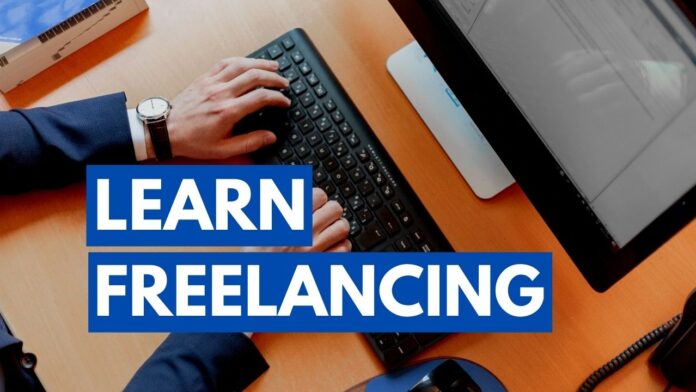Introduction:
In recent years, freelancing has become an admired alternative to the traditional 9-5 work model. With the rising remote work and the gig economy people are progressively turning towards freelance to achieve financial freedom and escape the daily grind of the traditional office job. In this article we will explore how freelancing can help you achieve financial freedom and why it might be the right choice for you.
What is Freelancing?
Freelancing is the practice of working as a self-employed individual providing services to clients on a project-by-project basis. Freelancers are typically hired for their expertise in a specific area such as writing, graphic design, or programming. They are often able to work from home or in a location of their choosing.
The Benefits of Freelancing:
Freedom is one of the biggest benefits of freelancing. As a freelancer, you have control over your schedule and can work on projects that interest you. This means you can choose to work during the hours that suit you best. Which can be particularly beneficial if you have other commitments such as caring for children or elderly relatives.
The potential for higher earnings is another benefit of freelancing. While freelancers do not receive the benefits and perks that come with a traditional office job such as healthcare and retirement plans. They can often charge higher rates for their services. This is because they can work with multiple clients simultaneously and negotiate their rates.
Freelancers also can build their brand and reputation, which can lead to more business opportunities in the future. By building a portfolio of successful projects and developing a strong online presence freelancers can establish themselves as experts in their field and attract new clients.
How to Get Started as a Freelancer:
If you are interested to follow a career as a freelancer there are a few steps you can take to get started.
1. Identify your skills and expertise:
Identifying your skills and expertise is an essential first step in pursuing a successful career path. To identify your skills and expertise start by reflecting on your strengths and interests. Think about what tasks you enjoy doing and what comes easily to you. Consider your educational background, work experience, and any hobbies or personal interests that you may have. Once you have identified your skills and expertise you can begin to focus on developing them further and applying them to your chosen career path. By leveraging your unique strengths and abilities, you can be successful and achieve your career goals.
2. Creating a portfolio:
Next, create a portfolio of your work. This can include samples of projects you have completed in the past or examples of work you have done for yourself. A portfolio is important because it allows potential clients to see what you are capable of and helps you establish yourself as a professional.
3. Marketing and Branding Yourself as a Freelancer:
Once you have a portfolio, it is time to start networking. Reach out to friends and family members who may need your services or know someone who does. To meet other professionals in your field attend networking events and industry conferences and of course utilize online platforms like LinkedIn and Upwork to connect with potential clients.
4. Navigating Finances as a Freelancer:
As you begin to gain clients it is essential to establish clear communication and expectations. Set realistic deadlines and be clear about what you can deliver and don’t be afraid to negotiate rates – ensuring you are being compensated fairly for your work is important.
Achieving Financial Freedom as a Freelancer:
One of the biggest benefits of freelancing includes the potential for increased earnings and financial freedom. However, achieving financial freedom as a freelancer takes time and effort. Following are five tips to help you achieve financial freedom:
1. Build a strong network:
Your network is your greatest asset as a freelancer. Also, if you Continually network and build relationships with potential clients. And industry professionals.
2. Diversify your income streams:
Don’t rely on just one client or project for your income. however, Look for multiple streams of income to ensure you have a stable and sustainable financial situation.
3. Plan for your financial future:
As a freelancer you do not have access to the same benefits and retirement plans as traditional office jobs. However Planning for your future by investing in a retirement plan or setting aside money for emergencies is essential.
4. Continuously improve your skills:
Continuously improving your skills is essential in any career. particularly in freelancing where competition can be high. By staying up-to-date with the latest trends and technologies, you can provide more value to your clients and differentiate yourself from others in your field.
Conclusion:
Freelancing is a great way to achieve financial freedom and escape the 9-5 grind. With the ability to control your schedule and charge higher rates for your services. Freelancing offers a flexible and potentially lucrative career path. However, it does require hard work, networking. And a commitment to continually improving your skills. Also, If you are interested to follow a career as a freelancer, take the time to develop your skills. Build a strong network and plan for your financial future. With dedication and perseverance freelancing can offer a fulfilling and financially rewarding career path.










